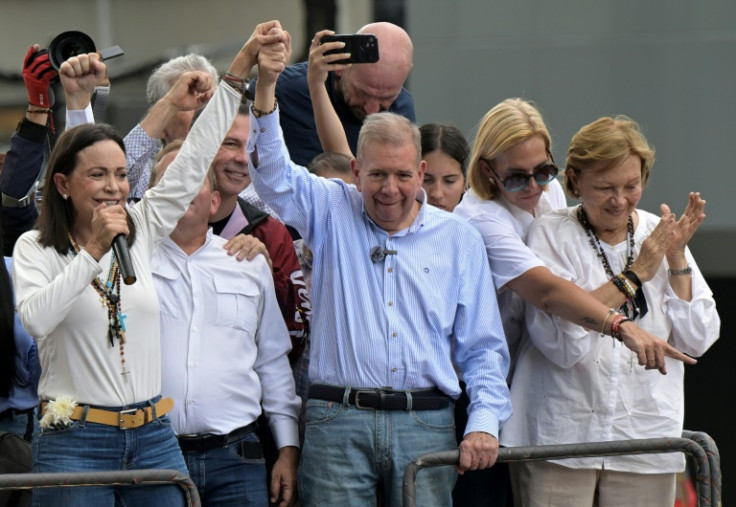
Following Venezuela's presidential election debacle, which resulted in autocrat President Nicolas Maduro clinching the win despite fraudulent vote tallies, the U.S. is refraining from recognizing opposition candidate Edmundo Gonzalez as the president-elect. The reason? Possible negotiations with the Chavista regime.
In a call with reporters Tuesday, a senior State Department addressed Venezuela. But while he did not specifically say why the U.S. is explicitly recognizing Gonzalez by that title despite acknowledging he did win the elections, his answers signaled the possibility of negotiations between Maduro and the opposition facilitated by Brazil, Mexico and Colombia, according to The Miami Herald.
Mark Wells, the acting assistant secretary for the Western Hemisphere said the U.S. is supporting diplomatic efforts by those three countries as they seek to push the "return of democracy" to Venezuela.
"We are now focused solely on getting the parties to talk and be part of a peaceful transition," Wells said. "This requires dialogue. The United States has offered our participation and support for any dialogue that the parties decide upon."
He also declined to provide further information about the current relationship with Venezuela, from the state of dialogue, to whether the Biden administration is considering lifting the $15 million bounty law enforcement is offering for information leading to Maduro's arrest as an incentive to potential negotiations.
In relation to conversations between the two countries, Wells said "it is public knowledge that we have had dialogue with Maduro's representatives in the past. I am not going to go into how these discussions will be at this time, nor am I going to mention... specific people in this dialogue."
Last year, the U.S. and Venezuela reached a secret deal in Qatar to allow the opposition to compete in the presidential elections in exchange for the U.S. lifting sanctions on Venezuela. However, Maduro violated several conditions in the agreement, and the Biden administration re-imposed some of the sanctions it had suspended, according to The Miami Herald.
Maduro's victory as announced by the National Electoral Council (CNE) in Venezuela has been met with high opposition by foreign leaders who denounced the results as fraudulent. While the U.S. has acknowledged Gonzalez won the popular vote, their handling of the situation has not necessarily been clear.
Initially, U.S. officials said they were "withholding judgment" until the government-controlled Venezuelan electoral council released the vote details, which it has not done. But in a meeting of the Organization of American States last week, Assistant Secretary of State Brian Nichols, the U.S. top diplomat for Latin America, said for the first time Gonzalez had beat Maduro by millions of votes.
Secretary of State Antony Blinken also acknowledged Gonzalez had won "the most votes" but he did not officially or explicitly refer to him as president-elect.
On Monday, State Department spokesman Matthew Miller said the administration was not yet ready to recognize Gonzalez as president-elect.
"That's not a step that we are taking today," he said. "We are in close contact with our partners in the region— especially with Brazil, Mexico, and Colombia— about a path forward. We continue to urge the Venezuelan parties to begin discussions on a peaceful transition back to democratic norms."
However, as crackdown of protests by armed forces on citizens continues, the death tally of demonstrators rises to at least 16 people and government officials disputing evidence of defeat, there are no signs in Venezuela that Maduro is listening to calls for a peaceful transition.
© 2025 Latin Times. All rights reserved. Do not reproduce without permission.




